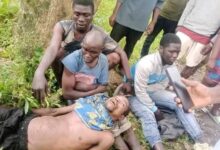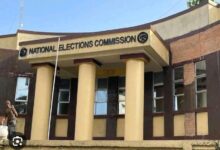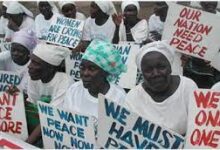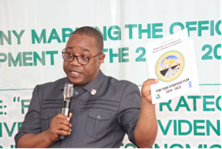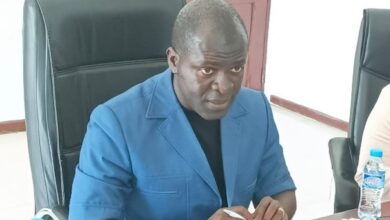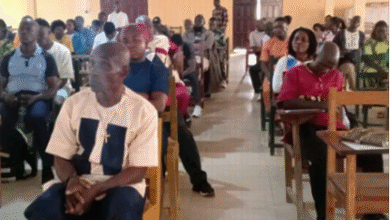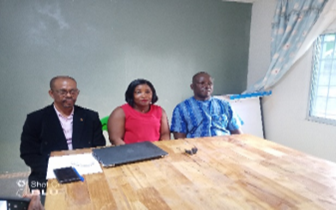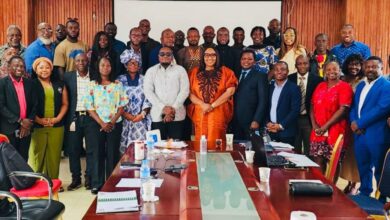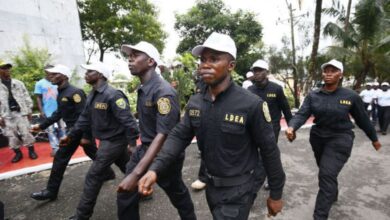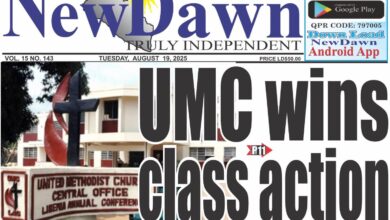Article: The Future of Liberia’s Rubber Industry: An Examination of Presidential Executive Orders and International Relations

By:Austin S Fallah-A True Son of the Planet Earth Soil: A Student of Modern Economic Emancipation Theories:
Stay tuned for my soon my soon to be released new book: “Labor Patterns of Economic Growth:Navigating the way to Economic Freedom of Developing and Third World Countries”:
In recent years, Liberia has faced numerous challenges in securing its economic future, with its agriculture and raw materials sector playing a pivotal role in its development.
A significant aspect of this sector is the production and export of latex rubber, which has implications for the nation’s economy, local employment, and international relations.
The focal point of this disquisition is President Joseph Nyumah Boakai’s Presidential Executive Order on raw or unprocessed rubber latex exports from Liberia and the implications of his current visit to Japan.
Essentially, this korero will argue that while President Boakai’s visit to Japan may emphasize fostering international relations and exploring business opportunities, it is crucial to critically evaluate the effects of the Executive Order and what it means for the sustainability of the rubber industry in Liberia.
The root of this inquiry lies in the significance of the rubber industry in Liberia’s economy.
Liberia is one of the world’s oldest producers of natural rubber and has historically been a significant economic driver for the nation.
Rubber production provides livelihoods for thousands of Liberians and constitutes a vital source of income for rural communities.
Nonetheless, this industry is currently grappling with numerous challenges, including reliance on multinational corporations, fluctuating global rubber prices, environmental concerns, and the impacts of climate change.
The Executive Order issued by President Boakai aims to regulate the export of unprocessed rubber latex to encourage local processing, enhance the value chain, and stimulate economic growth.
President Boakai’s approach is strategic. By instituting an Executive Order restricting the export of raw latex, the government is attempting to promote the establishment of local processing facilities that could create jobs, increase local revenues, and enhance the quality of rubber produced.
These initiatives align with a broader vision of promoting sustainable practices in Liberia’s agricultural sector.
However, it is vital to evaluate the potential implications of an executive order that may conflict with the interests of multinational corporations, particularly Firestone Liberia, a subsidiary of the Japanese-owned Bridgestone Corporation, which historically has had a significant hand in Liberia’s rubber sector.
This immediate economic tug-of-war demonstrates the complexities of Liberia’s relationship with global markets and multinational corporations.
Firestone’s extensive rubber plantation operations in Liberia create jobs and represent a considerable portion of the raw rubber harvested in the nation.
However, the concern arises when the benefits of such foreign investments are weighed against the necessity for economic independence and sustainability.
Will President Boakai’s Executive Order be upheld in the face of pressure from corporations such as Firestone?
Ultimately, that remains speculative.
President Boakai’s current visit to Japan is set to include discussions and meetings, potentially signaling a shift toward renegotiating terms that may favor international trade.
It is essential to analyze the implications of this visit, especially in light of his Executive Order.
The underlying question persists: Is this visit a strategic negotiating effort to lift the Executive Order on raw rubber exports, thereby permitting Firestone and other foreign entities to sustain their operations without the regulatory constraints imposed by this executive order?
To assess this, we must consider the context of international relations and the balance of power between Liberia and Japan.
Japan has been a crucial partner in Liberia’s post-conflict recovery and development, providing aid, investments, and infrastructure support, such as the Japanese Freeway.
The relationship between Liberia and Japan is a crucial element of Liberia’s international position.
President Boakai’s visit may well center on trading opportunities, broader economic cooperation, and potentially revisiting or negotiating specific economic policies, such as exporting unprocessed rubber latex.
While fostering international relations and seeking beneficial economic partnerships are essential, these efforts must not undermine domestic policies to strengthen the local economy.
Liberia must carefully navigate the delicate balance between attracting foreign investment, which is essential for stimulating economic growth, and implementing sustainable practices that allow local industries to thrive.
Opponents of President Boakai’s Executive Order may argue that restricting raw latex exports could deter foreign investment, particularly from established companies like Firestone.
They may contend that such restrictions could create a less attractive business environment, leading to industry stagnation and potential job losses.
The concern is that adherence to such restrictions could result in companies seeking more favorable investment conditions in other countries, particularly in regions where rubber production conditions are more favorable or less bureaucratically restrictive.
Nevertheless, realizing that a sustainable approach must focus on domestic capacity building is key.
While responsiveness to international interests is necessary, Liberia must prioritize its economic resilience.
Rubber processing addresses local employment concerns and stimulates the growth of ancillary industries, encouraging entrepreneurship and innovation within Liberia.
President Boakai’s administration has the opportunity, during and after his visit to Japan, to present a clear and constructive vision for the rubber industry that emphasizes the importance of sustainable development.
By doing so, he could create an atmosphere where local and foreign businesses can flourish.
This vision would require establishing clear frameworks and incentives for investment in local processing while ensuring a robust regulatory framework that prioritizes the interests of Liberian workers and communities.
This leads to the conundrum: will President Boakai uphold the Executive Order in light of international pressure, or will he concede to demands from powerful multinational corporations like Firestone?
The answer may shape the evolution of Liberia’s rubber sector over the next weeks, months, and years.
It exposes a critical tension between global economic pressures and national economic sovereignty aspirations.
Examining the trajectory of similar economies is a valuable case study to further illustrate this point.
Southeast Asian countries such as Thailand and Malaysia have effectively balanced extensive corporate participation and local empowerment.
These countries have successfully implemented policies that favor value addition at local levels, thereby maximizing their economic returns on natural resources.
They provide a model from which Liberia can draw valuable lessons.
In essence, President Boakai’s forthcoming visit to Japan could serve as a pivotal moment for the rubber industry in Liberia.
Promoting international relations while fostering local economic development could significantly shape the industry’s future.
How President Boakai addresses stakeholders from both domestic and international platforms will be critical in determining whether the Executive Order remains in effect or will be reviewed.
The sustainability of Liberia’s rubber industry hinges upon President Boakai’s ability to reconcile the demands of international business with the need for domestic development.
His actions during his visit to Japan could tip the balance toward either liberalizing raw rubber exports or reinvesting in local capacities.
Ultimately, the decisions made in the next few weeks, months, and years must reflect Liberia’s commitment to sustainable economic growth, ensuring that the benefits of its rich natural resources directly improve the lives of its citizens while creating a stable foundation for future generations.
Ultimately, only time will reveal the long-term consequences of these political and economic decisions.
Still, Liberiaia stands at a critical juncture where strategic foresight could pave the way for a robust economic future anchored in sustainable principles.
The choices made in the coming days, weeks, months, and years will undoubtedly define the nation’s trajectory as it navigates the complexities of domestic empowerment and international commerce.




